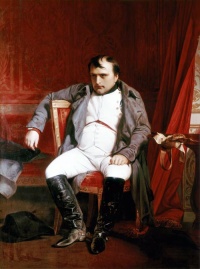Politics of Europe
From The Art and Popular Culture Encyclopedia
|
Related e |
|
Featured: |
The politics of Europe deals with the continually evolving politics within the continent. It is a topic far more detailed than other continents due to a number of factors including the long history of nation states in the region as well as the modern day trend towards increased political unity amongst the European states.
The current politics of Europe can be traced back to historical events within the continent. Likewise geography, economy and culture have contributed to the current political make-up of Europe.
Modern European politics is dominated by the European Union, since the fall of the Iron Curtain and the collapse of the Eastern Bloc of Communist states. After the end of the Cold War, the EU expanded eastward to include the former Communist countries. By 2013, it had 28 member states.
See also
- International organisations in Europe
- Politics of the European Union
- European Neighbourhood Policy
- Europe
- Culture of Europe
- Economy of Europe
- Geography of Europe
- History of Europe
- List of conflicts in Europe
- List of Europe-related topics
- OSCE countries statistics


